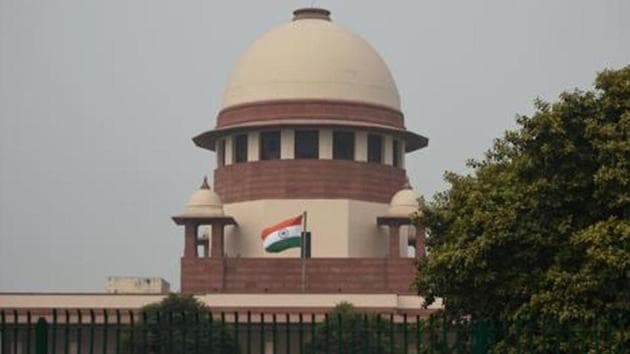SC verdict on referring Article 370 case to larger bench on Monday
The constitution bench headed by justice Ramana and also comprising justices Sanjay Kishan Kaul, R Subhash Reddy, BR Gavai and Surya Kant had reserved its verdict on the issue of reference on January 23 last month.
Supreme Court will decide on Monday if the petitions challenging the abrogation of Article 370 that granted special privileges to the erstwhile state of Jammu and Kashmir should be heard by a larger bench of not less than seven judges.

The constitution bench headed by justice Ramana and also comprising justices Sanjay Kishan Kaul, R Subhash Reddy, BR Gavai and Surya Kant had reserved its verdict on the issue of reference on January 23 last month.
Senior counsel Dinesh Dwivedi, who was appearing for an intervenor in the case, had pointed out that two earlier SC judgments, Prem Nath Kaul (1959) and Sampat Prakash (1968), are at loggerheads with regard to the scope and intent of article 370. Since both these judgments were delivered by benches of five judges, Dwivedi had asked the court to refer the issue to a bench of seven or more judges.
In Sampat Prakash judgement, the Supreme Court held that article 370 will cease to be operative only if the President issues a direction to that effect on a recommendation made by the Constituent Assembly of Jammu & Kashmir.
In Prem Nath Kaul verdict, the Supreme Court ruled that plenary powers of the ruler of Kashmir were not limited by Article 370. The temporary provisions of Article 370, the court ruled, were based on the assumption that the ultimate relationship between India and Jammu & Kashmir would be finally determined by the Constituent Assembly of Jammu & Kashmir.
The central government and the union territory of Jammu & Kashmir had opposed the reference and submitted that there was no conflict between the two judgments. The centre has argued that the sovereignty of J&K enabled by Article 370 was temporary.
The centre had abrogated the Article on August 5 through a resolution in the Parliament and bifurcated Jammu and Kashmir into two union territories of J&K and Ladakh.
At least 23 petitions were filed in the top court challenging the government decision to abrogate Article 370. The hearing on the legality of the centre’s move will be considered by the court after it settles the question regarding reference to larger Bench.






